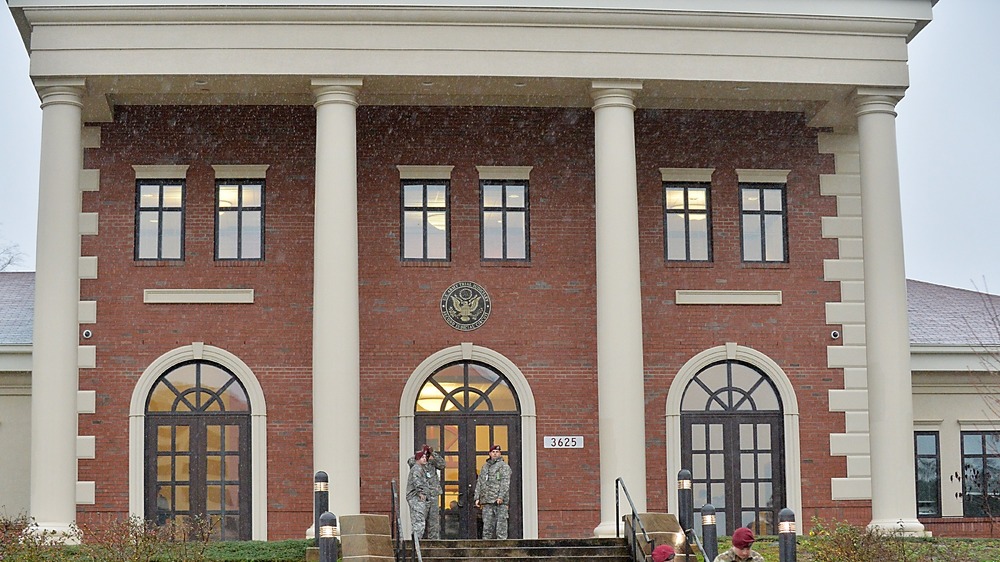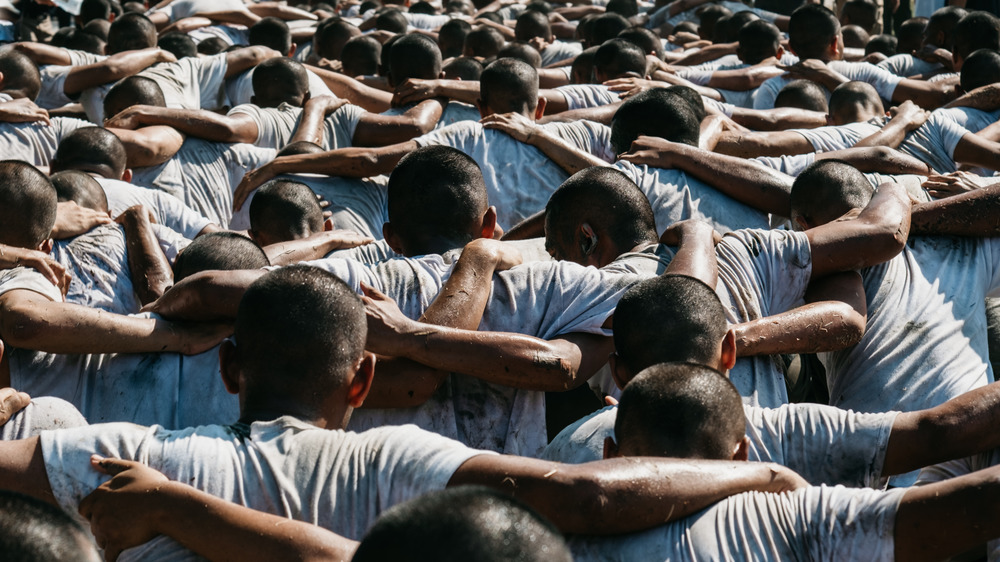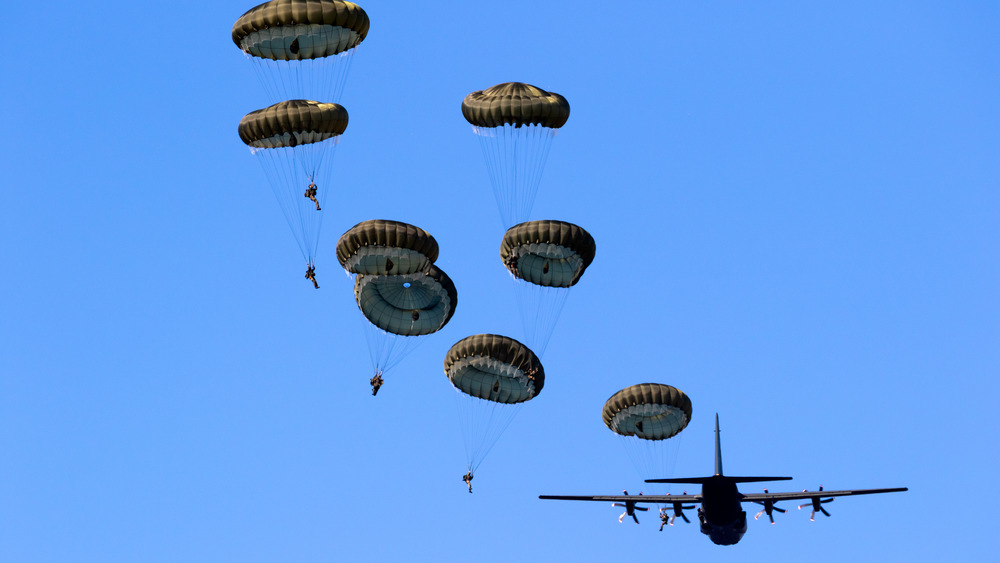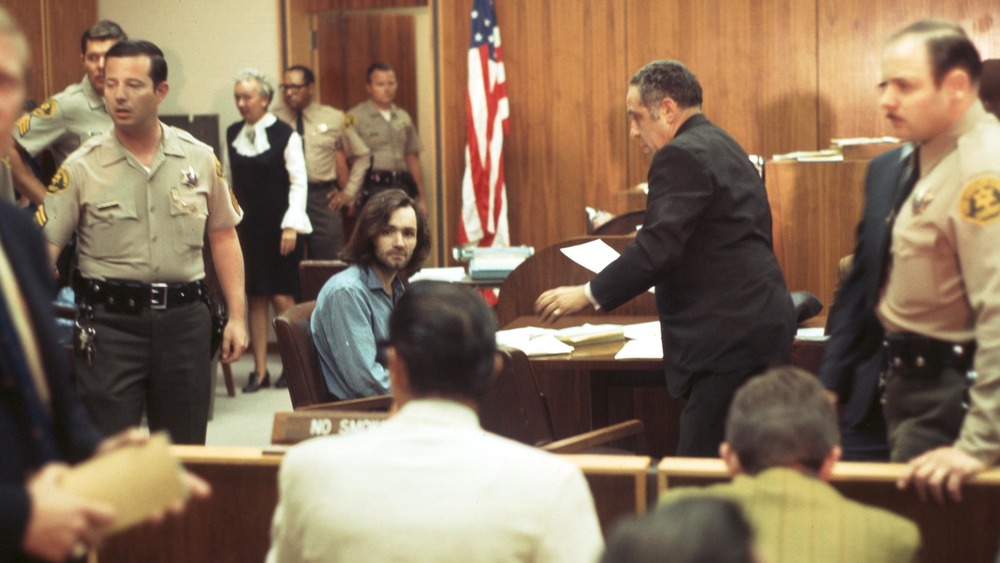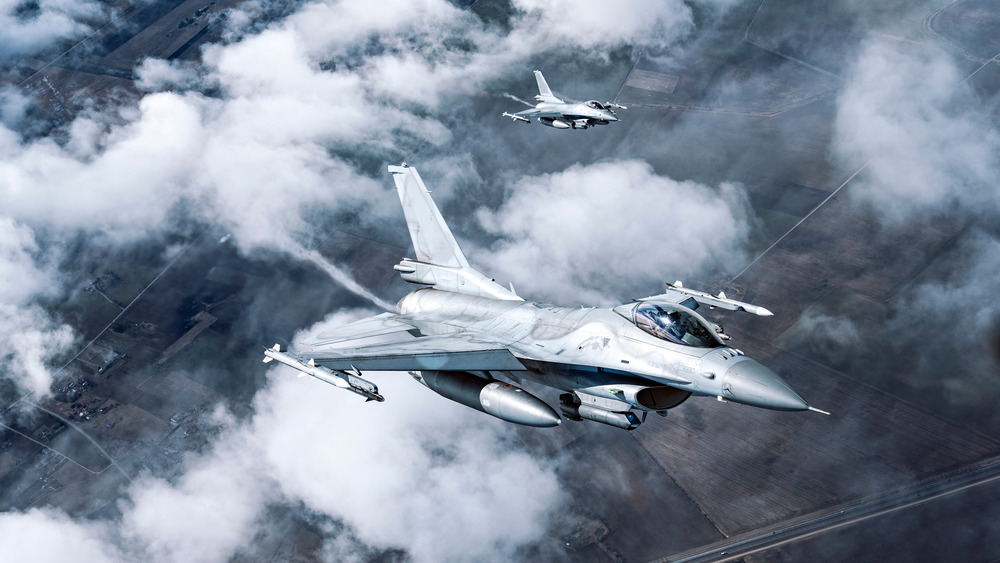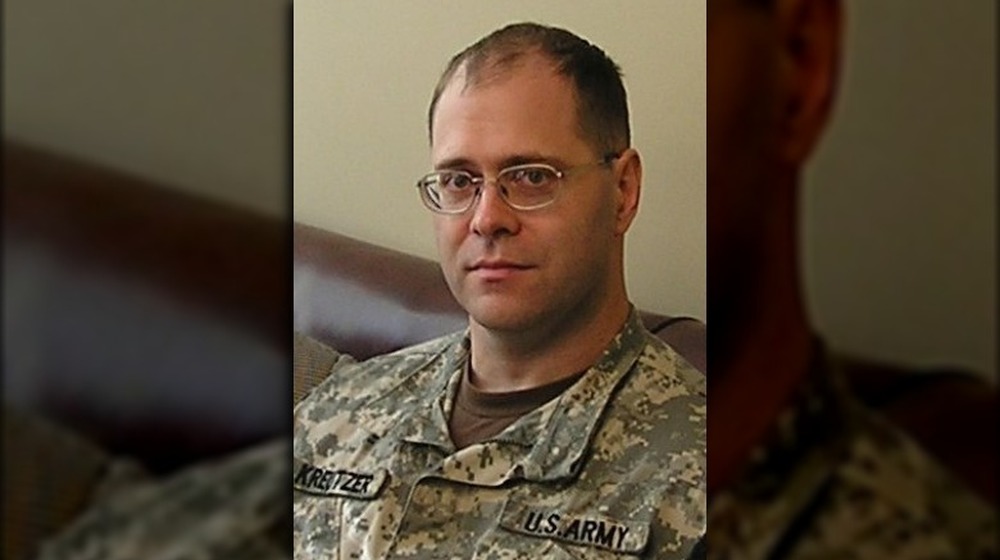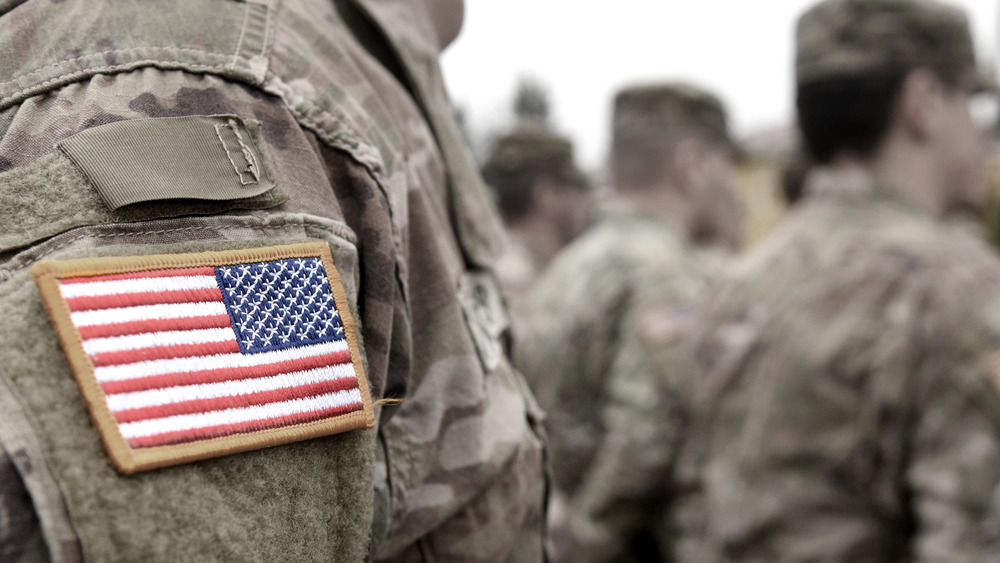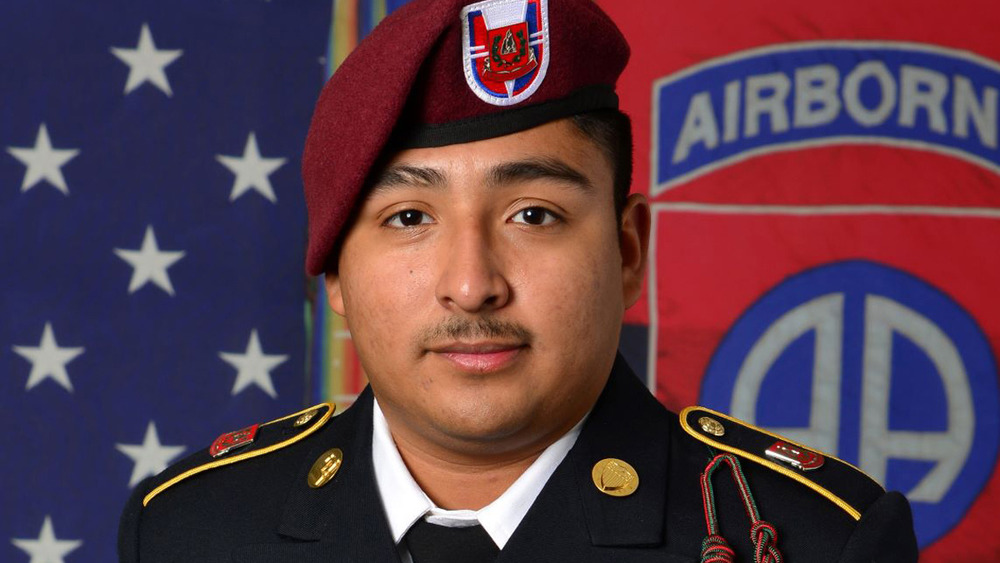The Untold Truth Of Fort Bragg
North Carolina's Fort Bragg is one of the best known military installations in the United States — in fact, it's one of the few military installations that most people know by name. But most are familiar with Fort Bragg not because of its military operations but because of its dramatic (and gruesome) headlines. It often seems as though every time there's a murder, shooting, or disaster, it happens at Fort Bragg.
As recently as December 2020, a special operations combat medic at Fort Bragg tragically shot and killed both his pregnant wife and himself (via Stars and Stripes). This is only one of many murders that have been associated with Fort Bragg, some of them still unsolved as of 2020. But did these murders occur because of the environment at Fort Bragg? Or is it simply a coincidence?
It's not unknown that the military has a domestic violence problem — and a regular violence problem. At a military installation, soldiers are distant from home, under constant stress, and hyper-vigilant. Their spouses are frequently both geographically and socially isolated. And the soldiers themselves often seek some release, whether through violence or through drugs.
But that's not the entire story about Fort Bragg.
Fort Bragg is the largest military installation in the U.S.
Why does everything bad seem to happen in Fort Bragg? At least in part, it's because it's where nearly everything happens. According to The Fayetteville Observer, there are over 260,000 individuals in Fort Bragg at any given time, including 14,000 civilians. And because this is a military installation, people are constantly going in and out. That number doesn't reflect the number of people who have lived in Fort Bragg during any given year.
So, a lot of it has to do with exposure. It's a larger place, so more things (both good and bad) happen there.
Comparatively, the next largest military installations are Fort Campbell (population 237,497) and Fort Hood (population 227,000). Those installations may not hit the headlines quite as frequently as Fort Bragg, but they definitely still do. In 2020 a man was convicted of a shooting in Fort Campbell, and Fort Hood was famously investigated for multiple deaths.
So, if Fort Bragg has a reputation problem, it's largely due to its size and visibility — people all know about Fort Bragg and they recognize the name. Violence, it seems, is less a "Fort Bragg" problem and more a general "military installation" problem.
Some have proposed changing the name of Fort Bragg to something less controversial
Fort Bragg is named after General Braxton Bragg — a Confederate general. And, if you haven't been paying attention for the last 155 years, the Confederacy lost. Because of this, some have proposed changing the name to something that would feel less controversial (via The News & Observer).
But who was Braxton Bragg, and why did he merit such an honor? In 1863, Bragg achieved what is known as the most significant Confederate victory — the Battle of Chickamauga. But he was later defeated by Gen. Ulysses S. Grant (you know, the side that won). He survived the war and went on to have a career as a civil engineer. (He had to, the Union had seized his plantation.)
Considering the fact that Bragg was a slave owner, and — it can't be emphasized enough — on the losing side, it may seem strange to some that the largest military installation in America is named after him. The truth was that the installation was named in a rush and not much thought was put into it. The Trump administration has since declined to change the name, but it's likely not a settled issue.
Fort Bragg's airborne training complex trained the Army's first Black parachute unit
In addition to being one of the largest military installations, Fort Bragg is known for having a particularly extensive airborne school. During World War II, it trained the first Black parachute unit with transports, gliders, and parachutes.
There were a number of all-Black units during World War II. The first all-Black paratrooper unit was known as the "Triple Nickels" or the 555th Parachute Infantry (via Click Orlando). Many of these units were highly determined to prove themselves, still within the era of segregation.
Later, the Triple Nickels would become the infantry's first smokejumpers. There was only a single fatality during this assignment, which was meant to combat Japan's incendiary devices — set to start fires along the northwestern portion of the United States.
Despite eventually being highly decorated soldiers, the Triple Nickels still faced segregation and persecution in their day-to-day lives. But it should be remembered that many courageous and patriotic soldiers have gone through Fort Bragg, regardless of (or perhaps despite) any violence that has occurred there.
Fort Bragg was also home to the Psychological Warfare Center
A part of the U.S. Army John F. Kennedy Special Warfare Center and School, the Psychological Warfare Center was an interesting and unique addition to Fort Bragg — though these psychological operations have since been moved from Fort Bragg to Fort Jackson. According to The Post and Courier, the center teaches "persuasion techniques," which are meant to psychologically break down enemies. Often, soldiers are also taught psychological warfare so they can better resist it.
Psychological warfare is generally used to make an enemy feel hopeless and afraid. Ideally, psychological warfare can be used in a deterrent capacity. It can prevent actual confrontation, reducing those who would otherwise be injured, maimed, or killed. An example of psychological warfare might be propaganda dropped upon a city that made victory appear impossible. If the city gives up without a fight, neither side loses people.
The darker side of psychological warfare deals with direct mistreatment and torture tactics, such as not allowing a subject to sleep to make them easier to manipulate. Harassing fire is another element of psychological warfare — random, undirected fire meant to traumatize the other side and lower their morale.
The first notable murder in Fort Bragg was by Jeffrey R. Macdonald
In the 1970s, a 26-year-old army doctor fatally stabbed his pregnant wife, 5-year-old daughter, and 2-year-old daughter, as reported in The Fayetteville Observer. It was such a shockingly violent crime that documentaries are still being produced about it. Naturally (for the time), the doctor blamed it all on hippies and acid.
A physician for the Green Beret, Jeffrey Macdonald has continued to maintain his innocence despite being found guilty by the court. He insisted that four hippies, on drugs, had broken in and killed his family. Since the Manson murders had happened in the 1969, this wasn't unheard of, but it also certainly wasn't common. Someone had also written the word "pig" in blood on his wall.
But the investigators were skeptical. First, they thought that the "hippies" would have gone after Macdonald first, as he would be the bigger threat. Further, his wounds appeared far less significant than what his family had gone through — he was stabbed a few times, compared to the dozens of times his family members were stabbed.
But there still have been some questions regarding crime scene contamination, the validity of the witnesses, and the motive.
In 1994, the Green Ramp Disaster claimed 24 lives of the Fort Bragg airborne division
Still one of the most disastrous domestic training operations, the Green Ramp Disaster killed 24 and injured over 100 when two aircraft collided. The incident itself occurred at the nearby Pope airbase, but those killed were Fort Bragg troops.
It's rare to have such a significant disaster during a training operation. The accident began when an F-16D and a C-130E collided around 300 feet above the ground. The F-16 ejected its crewmembers, but the plane continued on its course, crashing into a parked C-141 and becoming a mass of wreckage and fire.
The debris then struck the paratroopers standing at the Green Ramp — and the resultant damage and injuries were extensive (via The Fayetteville Observer). According to reports, soldiers who tried to outrun the fire fared worse than those who stopped, dropped, and rolled.
William Kreutzer opened fire on an officer and 18 other soldiers
There is a reason why most people are familiar with Fort Bragg because of negative headlines. One of the most notable events occurred in 1995, when William Kreutzer opened fire on a dozen and a half troops — one officer and 18 other soldiers.
The officer died, but 18 other soldiers were injured — a feat that seems almost impressive itself, given that so many were shot and not seriously injured. Kreutzer was sentenced to life in prison thereafter.
But why would you open fire on other soldiers? Ultimately, it's believed that he was simply mentally ill. He had talked about rampage murders previously, as reported in The Fayetteville Observer, but wasn't taken seriously at the time. At his trial, Kreutzer had a statement read, which offered a heartfelt apology. He was sentenced to life in prison.
Back in 2002, there were a string of four murders at Fort Bragg
While there had been a few murders in the past, what really propelled Fort Bragg into public consciousness was the summer of murder in 2002 (via CBS News).
Nearly twenty years ago, four murders occurred within six weeks of each other. All of those murdered were women, married to soldiers stationed there. They were shot, strangled, and stabbed. Sgt. 1st Class Rigoberto Nieves shot his wife, Teresa, and then himself, only two days after returning from Afghanistan. Jennifer Wright was strangled to death by her husband, Master Sgt. William Wright, who had been back from Afghanistan for one month. Sgt. 1st Class Brandon Floyd shot his wife Andrea Floyd, then himself, having returned from Afghanistan six months prior. Army Sgt. Cedric Ramon Griffin killed his wife and then set their house on fire, with their two children (who escaped) inside.
These types of domestic murders weren't unheard of in Fort Bragg or other military installations. But there were so many of them at once that the military as a whole was forced to acknowledge issues that were present — there was little support for victims of domestic violence and many of them had little to no safety nets.
Fort Bragg Army Specialist Ricky Glen Elder killed a superior officer and then himself
When Fort Bragg Army Spc. Ricky Glen Elder killed a superior officer (and then shot himself), there were some questions. First, there were questions about why he was allowed to deploy at all. He had a significant rap sheet which included violence — and at the time of the murder, he was already facing a court martial.
According to Military.com, by the age of 12, Elder had already been charged with felony burglary. He committed multiple crimes as a juvenile before enlisting directly out of high school. In the Army, he was accused of stealing a $1,700 tool kit, something that would cause him to face both court martial and potential discharge.
While serving, he lost a friend in an explosion and suffered from post-concussion amnesia. He picked fights, punching a woman in a bar so hard her eyelid was ripped open. Nevertheless, he was deployed to Afghanistan. He was expected in court the day after he shot Lt. Col. Roy Tisdale, a superior officer, and then himself.
Two men were discovered dead at Fort Bragg
It does seem that Fort Bragg has a lot of cases of death going around. In December 2020, two men were discovered dead at Fort Brag — a master sergeant and a 44-year-old member of the Army, as reported in The News & Observer. These deaths are still under investigation.
While the deaths occurred at a training site, they are not believed to have been training related. Foul play was suspected, as shell casings were found at the scene, but no weapons were found. Investigators theorized that it happened during a drug deal gone wrong (via the NY Daily News).
But because it's still under investigation, that can't be said with certainty. In the past, Fort Bragg has had issues with soldiers purchasing illegal drugs, often from nearby neighborhoods, as reported by ABC News. According to the soldiers themselves, this included opium, hash, cocaine, and crack, and that there were many spots at which to get drugs.
Of course, if drugs are so plentiful, are they plentiful enough to kill for?
A Fort Bragg paratrooper murdered in May 2020 was apparently decapitated
In May 2020, a Fort Bragg paratrooper was found decapitated. Yet, the cause of death was determined to be unknown — there wasn't enough of the body left to determine how he died, and the head could have been removed post-mortem, according to WRAL.
There's very little information about how or why Spc. Enrique Roman-Martinez died at all.
An autopsy of the head revealed that his jaw had been broken in two places and that there were multiple chops to the head. This would usually signal a drug crime, but no evidence of drug use was found. There were many questions about this death. He had wandered off from a camp site without his glasses or wallet, something that his family found extremely atypical.
Muddling this further was a mysterious 911 call, which claimed that the paratrooper had disappeared in the night and that others were looking for him — and that he may have been suicidal (via WSOCTV.com).
In October 2020, the Fort Bragg Twitter account was said to be hacked, sending out numerous sexual tweets
Maybe you heard about Fort Bragg in the news for less than somber reasons. In October 2020, the Fort Bragg Twitter account was seemingly hacked and numerous sexual tweets were sent out, as reported in Army Times. Later, they would admit that an administrator was responsible.
According to The Washington Post, the explicit tweets included commentary on a Twitter user's OnlyFans account, detailing sexual acts and other random stream-of-thought posts. It didn't go on long before being noticed and before the account was locked.
A civilian employee eventually came forward and said that he was responsible. According to the employee, he believed he was on his personal account the whole time (still not a great look). This isn't unheard of. In fact, it's pretty common.
It was not stated what consequences (if any) the civilian employee faced, though the Twitter account was eventually restored. In some ways, it's probably better than being hacked — at least the account wasn't compromised.
